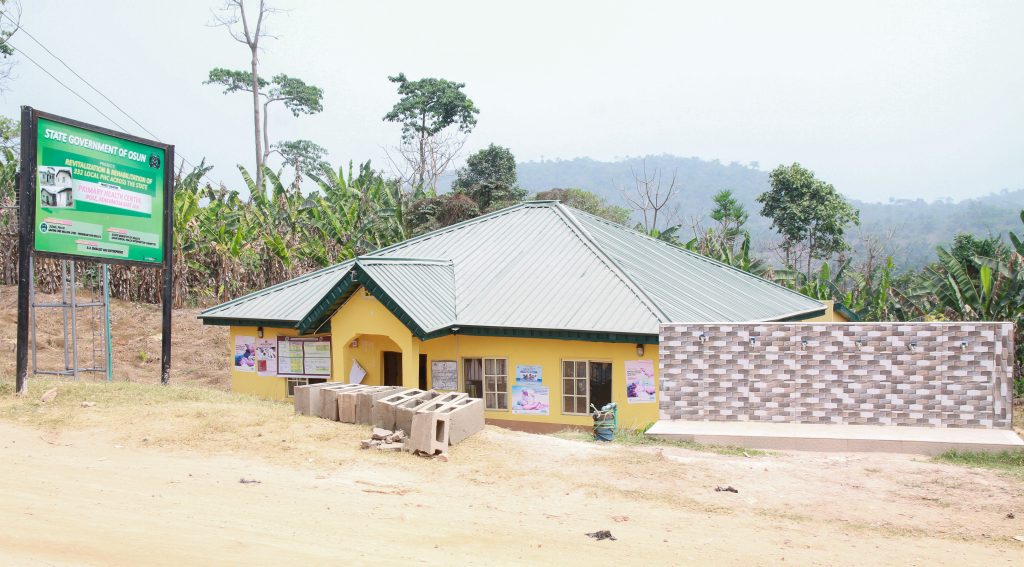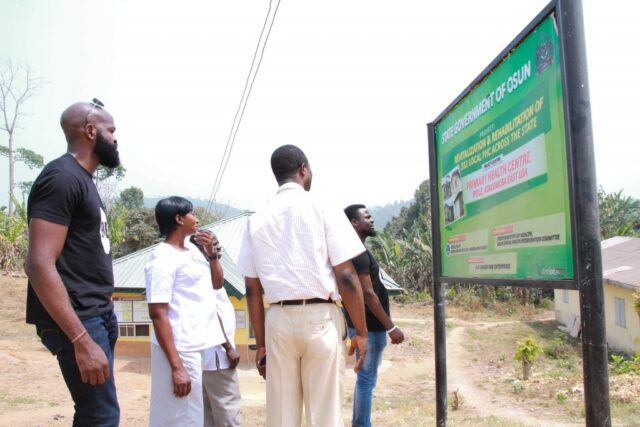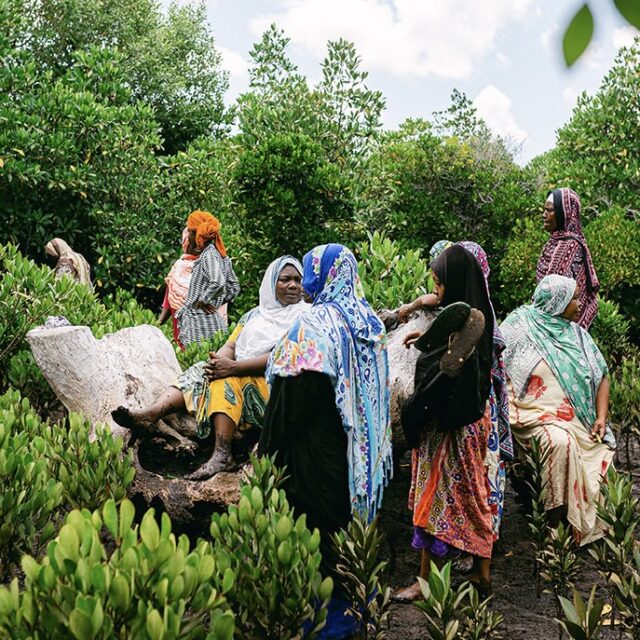The ONE Campaign recently visited a primary healthcare center in Osun State to better understand the implementation of Huwe. ONE Campaign’s Innocent Edache describes the transformation and promise.
“What would life be like without Huwe?” The question caused a pause in Mrs. Agunbiade, the warm, eager officer in charge at Ipole Primary Healthcare Centre (PHC) in Atukumosa East Local Government Area of Osun State. Huwe is a government programme designed to provide a basic minimum package of health services to low-income Nigerians through primary healthcare centres around the country.
Despite being created in the 2014 National Health Act, Huwe was not funded until 2018 after intense campaigning by ONE and several coalition partners. Osun State is the first state to deliver health services to citizens through Huwe.
We had spent a hot afternoon getting to know Mrs. Agunbiade and her team, going through the facility’s records, and discussing Huwe’s impact on lives in Ipole and the surrounding communities. The question of life without Huwe seemed to crystalize the afternoon’s activities. She weighed her answer, smiling nervously: “I don’t want to imagine it.”
Mrs. Agunbiade’s simple response encapsulates the promise that Huwe holds for millions of Nigerians. Ipole is a typical rural community in Southwestern Nigeria. A single unpaved road runs through the centre of the village flanked by houses and footpaths leading into the surrounding farms and forest. It is miles on potholed roads from the nearest hospital. 
A transformed healthcare center
Ipole PHC became a beneficiary of Huwe starting in late 2018. Through the programme, the facility received a dramatic transformation, with new training for staff, new equipment, a stock of medicines — and a bright yellow paint job. These simple actions to renovate the facility were noticed by the community. Before Huwe, the Tuesday ante-natal clinic saw 2 or 3 patients per week. Now, 8 to 10 patients is normal, with many women coming from surrounding communities.
After serving us oranges and bananas, Mrs. Agunbiade led us down the village road towards Oba’s Palace. On the way, we stopped to talk to a community member, who looked to be in his 50s. His lean, muscular frame hinting at a lifetime of labour on his nearby farm. He described the state of the clinic before Huwe, remembering when even finding a chair to sit down at the facility was a problem. It was unkempt and often lacked the basic medicines that are now readily available.
He shared his enthusiasm for the clinic now and how happy he is that it’s across the street from his house. He helps with security at night and supports community mobilization around the clinic’s activities.
Remaining challenges must be addressed
Despite the clear, positive impact of Huwe on their facility, the staff of Ipole PHC identified a few areas for improvement.
For starters, the facility needs more staff and the building needs expansion and fencing. In discussions with senior Osun State health officials during our visit, they pointed to the lack of clear implementation guidelines from the federal government as a major challenge to Huwe continuing and expanding in the state. They noted other major administrative problems facing the programme in Osun State, including a lack of funds for supervisory visits to facilities and the non-release of Huwe insurance funding, which is tied in the federal government’s ongoing review of the Huwe guidelines. The National Health Insurance scheme is also re-examining its relationship with the state schemes.
There is very important work to do on the role of Ward Development Committees (WDCs) for Huwe facilities. Some appointments to WDCs have been made along party affiliation, meaning some committee members view their appointments as political rewards and expect to benefit from them. Continued orientation of committee members and a review of policies around WDCs will help to overcome this problem.
Despite these challenges, the state’s experience with Huwe so far shows great promise.
COVID-19 reminds us why we need strong health systems
The recent announcement that Osun State has recorded its first case of COVID-19 reminds us why Huwe is so important in Nigeria. With some of the best healthcare systems in the world struggling to deal with outbreaks of the disease in Europe, it’s easy to despair for Nigeria, with our massive population of over 200 million and an under-resourced, underperforming public health system.
We would be much better prepared for COVID-19 and other infectious diseases if every community in the country had a functional facility like Ipole PHC, through which much needed information, testing, treatment, and reassurance could be spread to even the most remote part of Nigeria.
With 30,000 primary healthcare centres across Nigeria, the basic infrastructure for a functional healthcare system that could help Nigeria better withstand outbreaks is already present. All that remains is for the government and citizens to commit ourselves to rejuvenating this system by successfully implementing Huwe across all 36 states and the Federal Capital Territory.
Huwe must work. Osun State is showing how.



